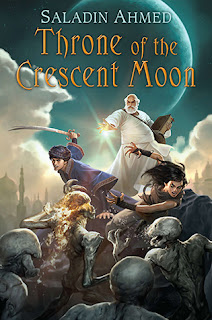TLDR version:
0x80070643 is probably thrown when you don't have the right software version, in other words, the update is not for you. Sometimes you need to upgrade your software in order for it to apply. To fix the problem with SQL Server, try installing the SQL Server 2014 Service Pack 2 if you are still at SP1.Now for the full version:
I thought the way Windows updates is a good thing. It keeps the computer up to date, regardless of how annoying it is to stop your work in order to perform updates. The problem, though, appears when having to perform an update that fails. Windows Update will nag at you again and again and again that you have updates. You don't have the option to ignore an update (unless you download
a specific tool) so you are forced to solve any problem with the update. This is still a good thing, even if annoying. And if regular people that don't know how to solve issues like that are angered enough, it will also motivate Microsoft to test their updates better. Win, win. Unless it happens to you!
Anyway, this blog post is about
KB4019099 or KB4032542 - Cumulative Update 13 for SQL Server 2014 SP1 which failed with a vague error code
Error 0x80070643, which is met in several situations when trying to install stuff. In order to get to the bottom of the problem, I manually downloaded the installer for the update and tried again.
This time the error was clearer:
TITLE: SQL Server Setup failure.
------------------------------
SQL Server Setup has encountered the following error:
The cached MSI file 'C:\WINDOWS\Installer\1bfcbd.msi' is missing.
Its original file is 'sql_engine_core_inst.msi' and it was installed for product 'SQL Server 2014 Database Engine Services' from 'F:\x64\setup\sql_engine_core_inst_msi\', version '12.1.4100.1', language 'ENU'.
To resolve this problem, recover the missing file from the installation media and start setup again.
For more information about how to resolve this problem, see 'Steps to restore the missing Windows Installer cache files' (http://go.microsoft.com/fwlink/?LinkId=144387) in the Microsoft Knowledge Base.
Error code 0x84B20002.
For help, click: http://go.microsoft.com/fwlink?LinkID=20476&ProdName=Microsoft%20SQL%20Server&EvtSrc=setup.rll&EvtID=50000&EvtType=0xD66F84B3%25400xF762992B%25401202%25402
Amazingly enough, the link that is supposed to solve the problem actually solves the problem. First of all the go.microsoft.com link causes too many redirects for Chrome, so you have to open it in some other browser. Once you do that, you reach this link:
How to restore the missing Windows Installer cache files and resolve problems that occur during a SQL Server update and at the end you get a VBS script that seems to repair missing C:\Windows\Installer files from the original installation source.
The first thing the page says is to try
setup.exe /ACTION=REPAIR /INDICATEPROGRESS=TRUE from the original installation source for SQL Server 2014, which of course you don't have anymore. But even if you do have it and you run the command, it fails near the end with a funny error: "C:\WINDOWS\Installer\1bfa87.msi" So the only possible solution is to run the VBS script. After that, the update install actually started.
... and failed with another error:
The upgrade cannot be installed by the Windows Installer service because the program to be upgraded may be missing, or the upgrade may update a different version of the program. Verify that the program to be upgraded exists on your computer and that you have the correct upgrade.
Error code: 1642
. Why are you asking me to upgrade something if I don't even have the version you need?! I've tried the setup repair option, just to see if anything else changed since running FindSQLInstalls.vbs, but I got the same error.
Under the assumption that the "original installation source" is actually not enough - since there was a
Service Pack 2 released since I've installed SQL Server from a kit, I've downloaded the SP2 file. Maybe it has a repair option. Ran it, and it ran successfully. Could it be that I never upgraded my SQL Server instance? Yes. Then all those "different version" messages actually make some sense.
Once I did that, Windows Update presented me with different updates altogether! Note that the original update said "SQL Server 2014 SP1" when executed.
Some of the updates installed OK, some failed, mainly
Security Update for Microsoft Visual Studio 2010 Service Pack 1 (KB2645410) and
Update for Microsoft Visual Studio 2010 Service Pack 1 (KB2635973). These are updates from 2012 and are related to the standalone VS version used by SQL Server Management Studio. I tried a restart, the updates remained there to annoy me. They both failed with error code 0x80070643 and when tried to install them manually they both reported the wrong software version.
Perhaps it is from all the meddling. Installing SP2 would have probably solved all the problems.
I hope it takes you less time to figure this out, once you've read this article.
Update: How to solve the issue of obsolete Visual Studio 2010 updates:I've downloaded the
Microsoft Fixit tool for forceful uninstall of software, even if the installer is not cached in C:\Windows\Installer. Then I uninstalled "Microsoft Visual Studio 2010 ENU". At this moment SQL Server 2014 Management Studio would not work anymore due to a missing component. Then I reinstalled
Microsoft Visual Studio 2010 Shell (Isolated) Redistributable Package. At this moment SQL Server 2014 worked again. Then I ran Windows Update, which found several updates to download, including a Service Pack 1 and several others. Their installation went with only a hitch, a random 0x80246007 (BITS service) error that went away when I retried the update. I started Microsoft SQL Server 2014 Management Studio, just to be sure it worked, and it did. Finally.
Thus endeth the saga of the reluctant Windows Updates.


 I read the book before I knew it was part of
I read the book before I knew it was part of 
 There is a rule in writing, that if you are trying to tell the story from the viewpoint of another character than the main one, for example the villain, and it is boring, then your story is not good enough. It seems to me that this was the cardinal rule that
There is a rule in writing, that if you are trying to tell the story from the viewpoint of another character than the main one, for example the villain, and it is boring, then your story is not good enough. It seems to me that this was the cardinal rule that 


